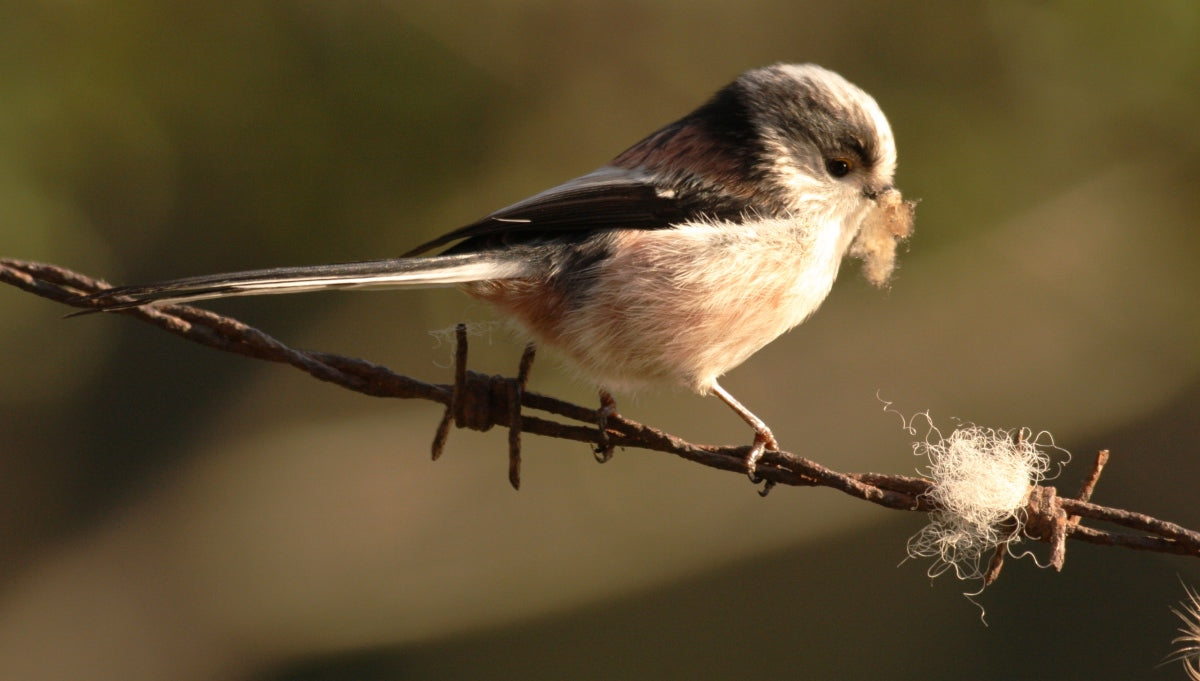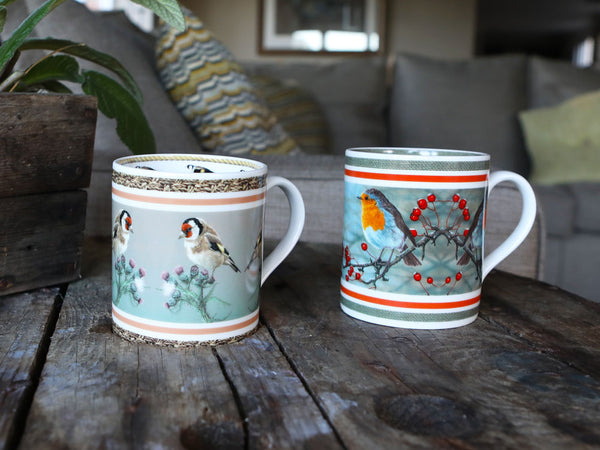Birds build the most amazing nests. Below, I pick out a few master bird builders and explore the techniques they use to build the perfect homes.
Beautiful bird builds
Like most people, I get the urge to tidy up my garden in spring, but I’ve learned not to tackle the cobwebs that knot up the corners of my greenhouse until I’m sure the long-tailed tits have finished with them. These dainty pink and grey birds weave a soft, delicate nest out of lichen, moss, or sheep’s wool and then stitch it together with cobwebs so that the nests can expand as their chicks grow.
Building intricate nests
The use of sticky cobweb threads to bind the nest is ingenious since long-tailed tits tend to have large broods and need them to stretch quite a bit. I’ve heard of one pair having 15 chicks, although it is more usual for this species to have between eight to 12.

Birds of prey scratch out their nests
Owls and kestrels nest in holes in trees but will also raise their chicks in old buildings or barns and readily take to purpose-built nests. Little owls, meanwhile, like to choose small spaces and will even nest in old rabbit burrows. Sometime before they are ready to lay, birds of prey dig a shallow scrape into the floor of their nest. In fact, they tend to make several ‘scrapes’ in the time leading up to the first egg being laid and I have watched both males and females scratch away at the floor of a nest to create a comfortable hollow for their eggs.
This year the cameras in my tawny owl nest box also revealed that in preparation for their eggs, a pair will also together to tidy the nest box. I noticed that Bomber, the male, became preoccupied with restorations to the nest entrance, forever wobbling then making good a loose section of wood. Meanwhile, Luna, the female tawny owl, spent her time tidying up the nest floor, removing small twigs, and breaking up hard clods created by old pellets.
Smaller birds build with their beaks
But these efforts pale in comparison to the energy, inventiveness, and sheer hard work other, smaller, bird species put into their nests. I have a healthy population of tree sparrows here at Fotherdale and I never fail to be amazed at the way these small birds busily create a hollow cup shape out of lichen and moss using just their beaks. They go on to build this up into a tall, domed structure, in which to tuck their chicks up safe as they grow.
Some birds like to use existing cavities. I once watched a wren that had woven a nest from grasses and moss in an overhang by a roadside.
Kingfishers dig tunnel nests
Kingfishers are clever in the way they dig a long, sloping tunnel into a riverbank. The slope is angled downwards, to allow for excrement to flow out and keep the chicks inside clean. Find out how I built an artificial kingfisher nest to study these secretive birds raise their chicks. 
Unusual nest sites
Often birds will choose unusual places to build their nests. I’ve heard of a blue tit pair that nested inside a traffic light. Here at Fotherdale, I've seen a robin nest in an old kettle where I kept plant labels for my vegetable patch. Seeing it there was both the inspiration for a painting and for an idea to create nest boxes out of interesting domestic objects. I now like to incorporate these props into backdrops in my paintings. My latest is a row of old walking boots that I plan to nail them to a garden wall in the hope that at least one species takes up residence in one. I once hung two old storm lanterns outside my porch and these became homes for a nesting pair of robins and, separately, a nesting pair of swallows.
Swallow nests are made from mud
It was fascinating to watch the swallows make their nests. These birds gather up mud and pat it into a rounded cup shape which, when dry, becomes a secure base in which to raise their young. I got so involved, I even watered a patch of soil so that the swallows had enough building material. It had been a dry summer and these birds had flown such a long way to raise their young here in my garden, I did not want them to fail now due to a lack of suitable nesting material. 
Robins choose to nest near people
The robin meanwhile collected and then constructed a cup shape out of dried leaves inside its lantern. Robins often like to nest close to where people live, since this proximity to humans means they are more likely to be safe from predators. A friend once had a robin nesting in a tool pocket in his workshop. But probably the most expensive nest box I almost had was when a robin pair tried to nest in the grill of my Landcruiser. I had to ground the vehicle until I was able to persuade the pair to move into an old wheel and bring up their chicks there instead!

It was fun watching the chicks when they eventually fledged, the feathers on the top of their heads were still short and stuck up making them look like avian rock stars.






























